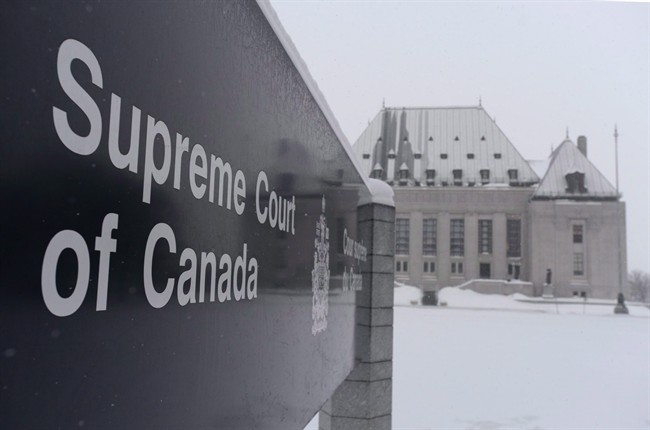TORONTO – Prime Minister Stephen Harper has appointed Justice Russell Brown of Alberta’s Court of Appeal to the Supreme Court of Canada.

Harper announced the decision in a statement late Monday. Brown replaces Justice Marshall Rothstein, who is retiring Aug. 31.
“Mr. Justice Brown brings to the Court wide experience as a law professor and legal scholar, a barrister, and a judge at both the trial court and appellate levels,” Harper said in a statement. “His appointment is the result of broad consultations with prominent members of the legal community and we are confident he will be a strong addition to Canada’s highest court.”
A member of the bars in British Columbia and Alberta, Brown sits in Edmonton, where he also serves as an appeal judge for the Northwest Territories and Nunavut.
He previously served on the Court of Queen’s Bench of Alberta, and will be the second member of the high court from western Canada, the other being Chief Justice Beverley McLachlin.
Brown wrote the majority ruling in a January case overturning a rape conviction over the trial judge’s apparent interference.
Brown holds a bachelor’s degree from the University of British Columbia and law degrees from the University of Toronto. He taught as an associate professor the University of Alberta’s faculty of law, where he also served as associate dean.
READ MORE: Quebec lawyer Suzanne Cote appointed to Supreme Court
- McLean accuses Calgary third-party advertiser of ‘whipping votes’ in favour of rezoning bylaw
- Canadian curler Chelsea Carey says don’t compare me to Jennifer Jones
- Firefighters battle blaze at vacant house in northwest Calgary
- 7 sent to hospital after carbon monoxide poisoning incident in northwest Calgary
He is a former advisor to the Justice Centre for Constitutional Freedoms. A February, 2013 endorsement from him extols “limited government”:
“Current events remind us that the notion of limited government – particularly as it pertains to freedom of conscience and freedom of expression – can never be taken for granted in Canada. More help is needed to preserve these rights. Because John Carpay has a demonstrated record of effective advocacy in just such matters, I expect that the Justice Institute will quickly
join the ranks of Canada’s most important watchdogs.”
(Carpay, the centre’s president, was a Wildrose candidate in Alberta’s 2012 election.)
Harper’s last appointment to the Supreme Court was Suzanne Cote in November of last year that followed more than a year of controversy after the prime minister’s original choice, Justice Marc Nadon was deem ineligible by the high court itself.
In a six-to-one decision the Supreme Court ruled that Nadon, a semi-retired Federal Court of Appeal justice, did not meet the qualifications laid out in the Supreme Court Act for a Quebec nominee to the top bench because he was not a sitting judge on the Quebec Court of Appeal or Superior Court.
The Conservative government had introduced changes in December 2013’s budget bill in an effort to make Nadon eligible as a former member of the Quebec bar. The amendments were also found to be unconstitutional.
Harper has now appointed seven of the nine Supreme Court judges.




Comments